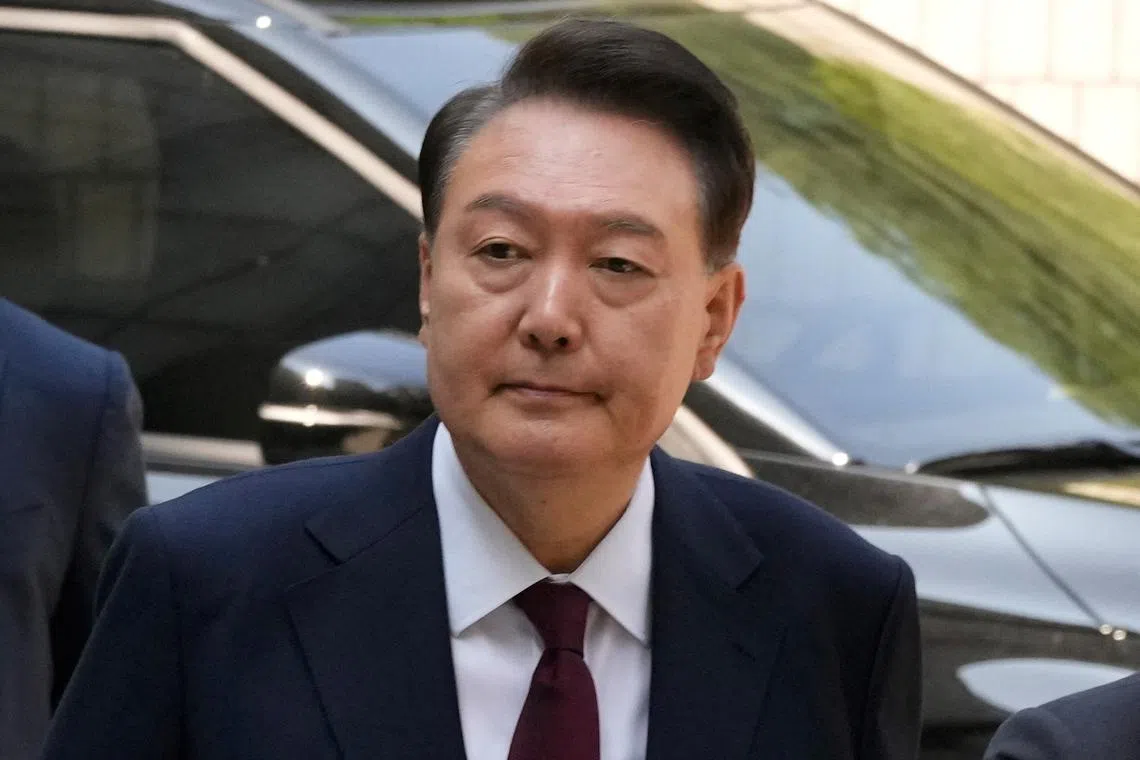South Korea’s ex-president Yoon leaves party ahead of snap election
Sign up now: Get ST's newsletters delivered to your inbox

Former president Yoon Suk Yeol (above) called on voters to back presidential candidate Kim Moon-soo in the June 3 polls.
PHOTO: REUTERS
Follow topic:
SEOUL – South Korea’s former president Yoon Suk Yeol left his conservative party on May 17 as it gears up for snap elections triggered by his impeachment over a bid to impose martial law.
The People Power Party (PPP) had been under pressure to expel Yoon ahead of the June 3 election, as polls showed it trailing the main opposition party.
“I am leaving the People Power Party today,” Yoon, who is standing trial on criminal charges of insurrection, wrote on Facebook.
He urged voters to support his former labour minister Kim Moon-soo, the PPP’s presidential candidate.
Mr Kim shot to public prominence as the only Cabinet member who refused to bow in apology for failing to prevent martial law.
This week, Mr Kim said for the first time that he was “sincerely sorry to the people who are suffering” because of the suspension of civilian rule.
Yoon’s December martial law declaration
Pro-Yoon rallies turned violent in January when extremist supporters stormed a Seoul courthouse. Four of them were handed jail terms this week.
Yoon was accused of tacitly encouraging the violence after warning that the country was “in danger” and pledging to stand with his hardline supporters “to the very end”.
On May 17, he said the upcoming snap election is the “last chance to prevent totalitarian dictatorship and protect liberal democracy and the rule of law”.
But the Democratic Party called him “shameless” for invoking “the very liberal democracy he himself destroyed”.
Mr Kim said he respects Yoon’s exit and pledged to “strive to make our party more united and more innovative”.
According to a Gallup poll released on May 16, the Democratic Party’s Lee Jae-myung – who is facing multiple criminal trials – is leading with 51 per cent support, followed by the PPP’s Mr Kim at 29 per cent. AFP

